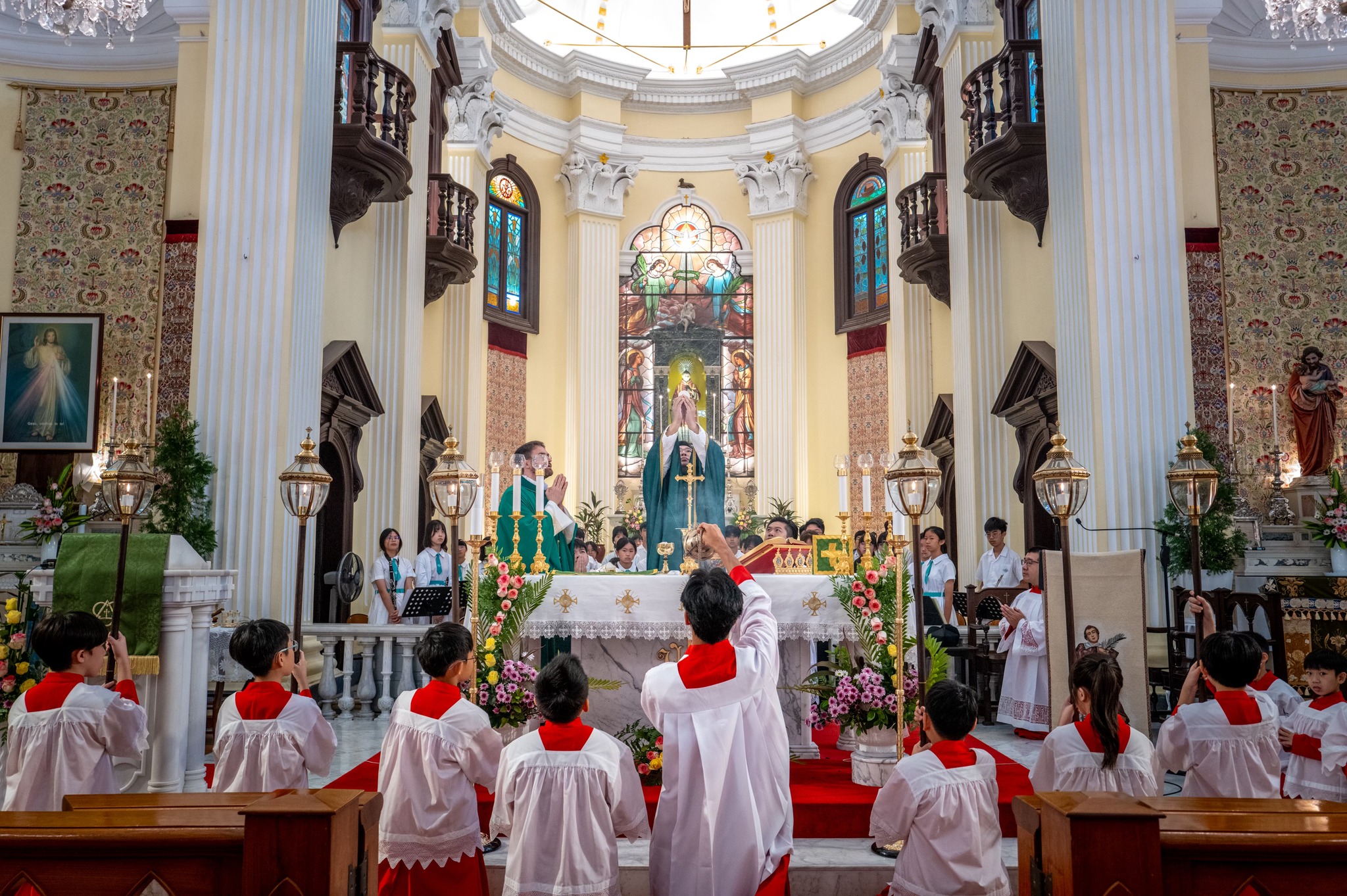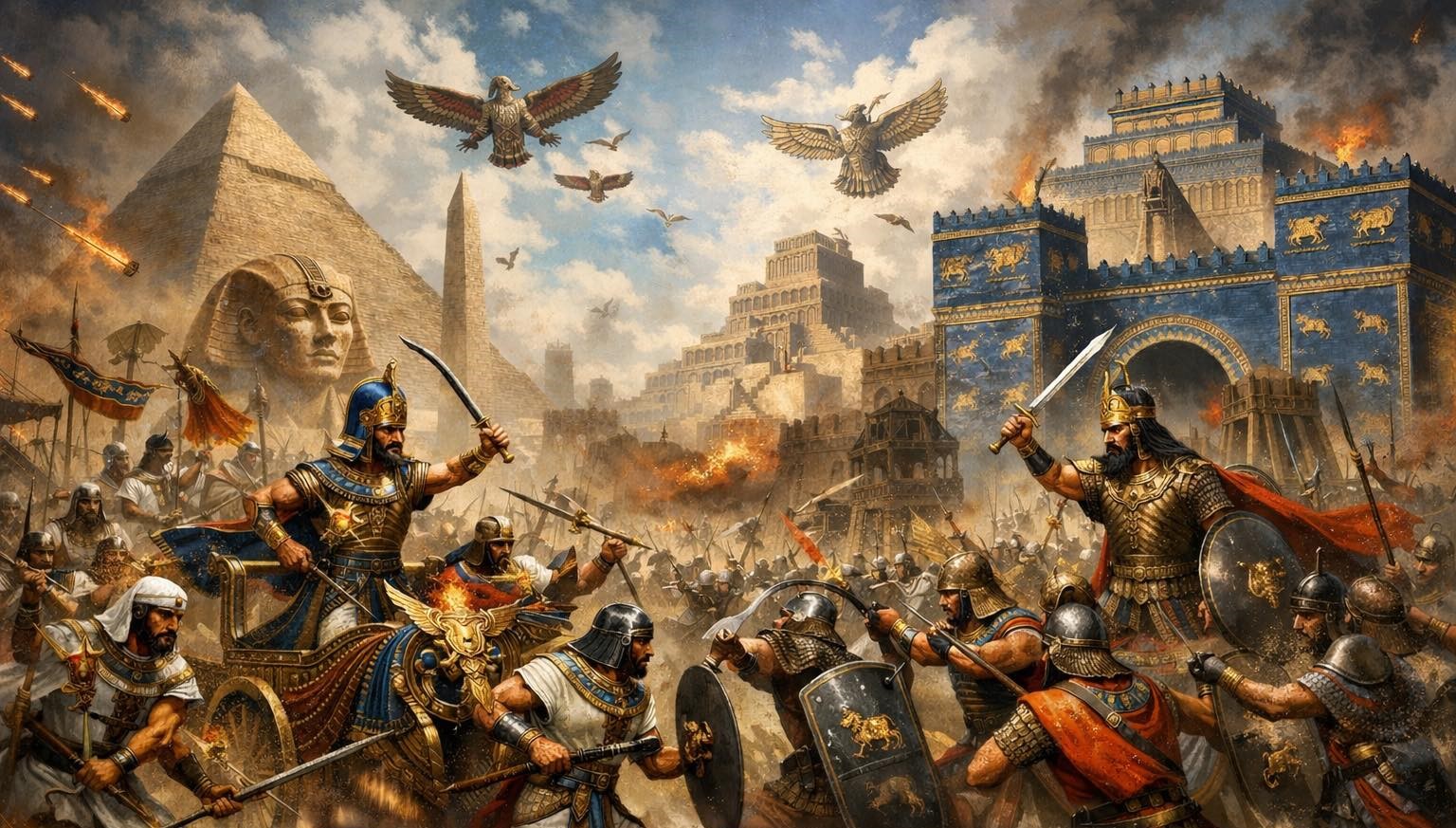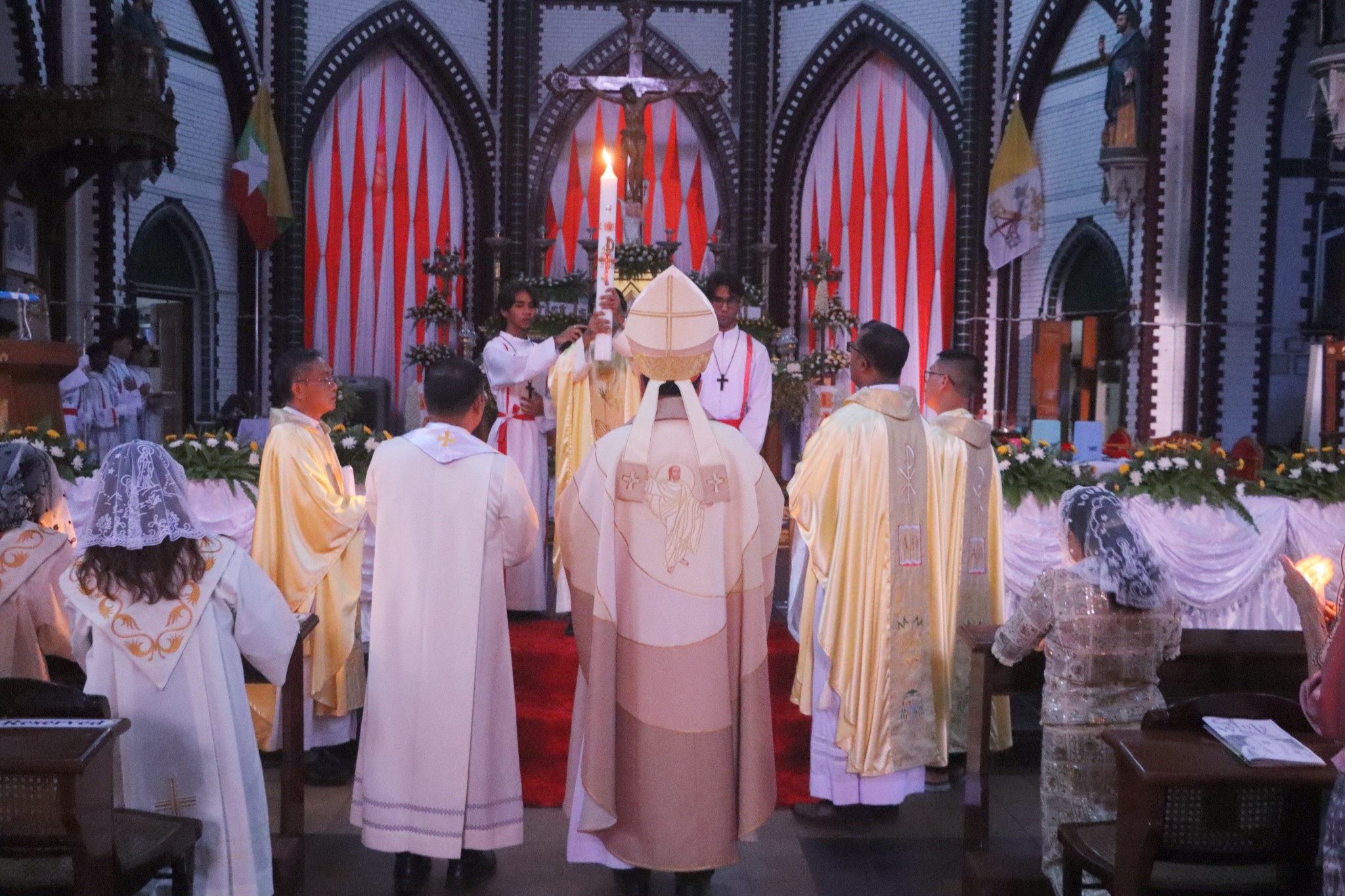Marco Carvalho
His Holiness Pope Francis has called for a “better kind of politics,” a more “open world” and paths of renewed encounter and dialogue in his latest social encyclical. With Fratelli Tutti, the Pope hopes to promote a “rebirth of a universal aspiration” toward “fraternity and social friendship.” The document is already available in Macau, thanks to the local branch of the Claretian Publications. O Clarim heard two local priests – Father Franz Gassner and Father Jijo Kandamkhulaty – on the biggest takeaways from Fratelli Tutti. Both claim that the Pope’s third encyclical letter is a call to discern the depths of our politics.
Fraternity and social friendship are the ways the Pontiff points out to build a better, more balanced and peaceful world. In your opinion how important is this message by Pope Francis?
Father Franz Gassner: Pope Francis offers an important orientation to overcome contemporary ills, especially regarding consumerism and economic and political shortcomings. Societies pervaded with the virus of individualism and entrenched interests produce many victims and are ultimately unstable and doomed to fail. The pandemic revealed that the current economic and social models are insufficient to lead us into the future. Exclusive thinking, fostering inequality and throw-away habits, are ruining us in the long run. Francis’ vaccines against these ills are “fraternity” and “social friendship,” “thinking and acting in terms of community” (FT 116). Man is not a homo faber or homo consumes, but foremost a homo fraternus and sororius, or – as Aristotle teaches – a zoon politikon, a community being (see also footnote 267 of Fratelli Tutti). Francis is rejuvenating an old classical truth, much forgotten by modern man. To mention one practical example, fraternity is the answer to migration, as “undertaking a journey together” in order to build cities and countries that, while preserving their respective cultural and religious identity, are open to differences and know how to promote them in the spirit of human fraternity” (FT 129). But fraternity and social friendship call for a change of hearts and minds: “Everything, then, depends on our ability to see the need for a change of heart, attitudes and lifestyles” (FT 166).
Fratelli Tutti has a very strong, very political message. The Pontiff claims that we need politics centered on human dignity. Will the world listen to his pledge?
FFG: Politics not based on human dignity are doomed to fail in the long run. The current pandemic reveals many wrongheaded policies. Failing to protect human dignity leads to the suffering of all in the long run, as the spreading in Covid-19 in overcrowded migrant housing estates shows. Human dignity has to be put before profit, interests and securities. We cannot build societies on sand, behind fences and walls. Regarding future political systems and powers: “Only a social and political culture that readily and ‘gratuitously’ welcomes others will have a future” (FT 141).
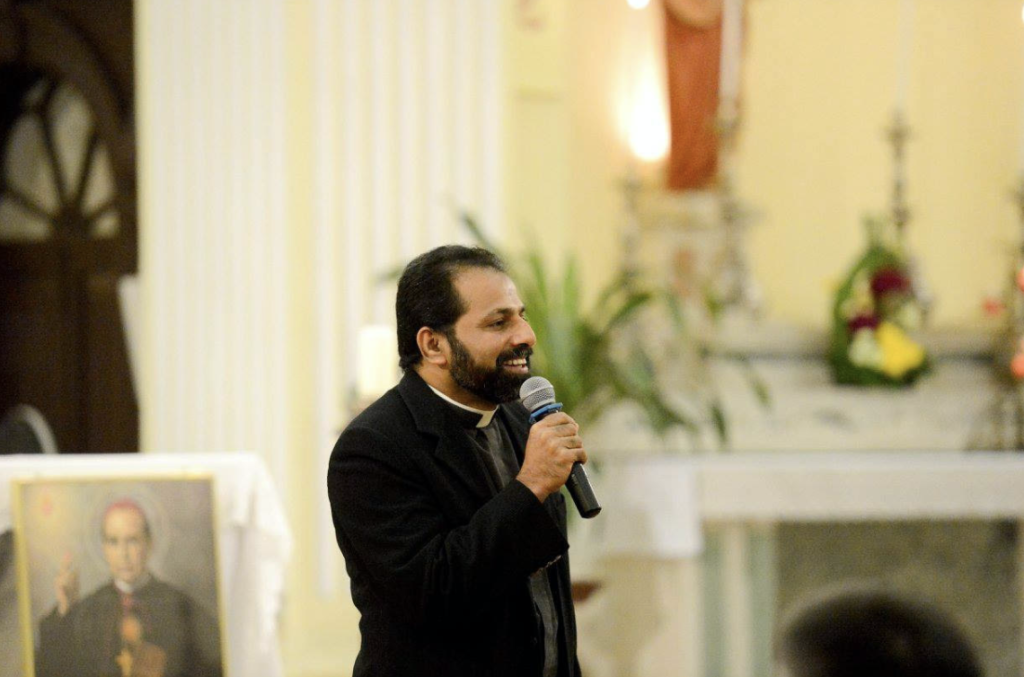
Francis also expresses a strong opposition to the death penalty, whom he claims is inadmissible and should be abolished everywhere. How important is this stance?
FFG: The death penalty instills in people and societies a misguided arrogant thinking that ultimately lowers the overall quality of solutions, with dehumanizing long-term effects. The death penalty lacks humility and morality and is unjust. Just imagine the cases of people in certain countries who walk free after having spent 20, 30, 40 years in prison, even on death row, finally cleared from all charges. Even in a clear-cut criminal case, the death penalty is outdated and self-defeating today, as recent popes have stated, and the societal consequences, for instance, in the US affirm. The faster societies understand this and abolish the death penalty, the better for their own harmonious development and for world peace.
What are the main theological foundations of Fratelli Tutti?
FFG: I would say it is the theology of mercy. The Hebrew word for “mercy”, “compassion”, and “tenderness” is רָ֫חֶם (rechem), which literally means “womb,” “bowls,” “lap of a mother,” the “place of birth.” God knit us together lovingly in our “mother’s womb” (Psalm 139:13). It is the place of consolation, tenderness, of healing, of a new beginning, of new life, like a child jumping on the mother’s lap after falling down. Commenting on the Parable of the Prodigal Son, Francis clarifies this practically at length in Fratelli Tutti. Jesus himself sets before us the Merciful Father, who caught sight of his lost son “from afar” and was “moved with compassion” (Greek: esplagnisthe, moved from within/from the bowels). Unlike the older son, the Merciful Father removes all walls and manages to open a new chapter in the life of his lost son. In fact, “gives birth” to him: “But now we must celebrate and rejoice, because your brother was dead and has come to life again; he was lost and has been found” (Luke 15:32). Love is stronger than death. This theological foundation is highly relevant for all. “Politics too must make room for a tender love of others. ‘What is tenderness? It is love that draws near and becomes real. A movement that starts from our heart and reaches the eyes, the ears and the hands… Tenderness is the path of choice for the strongest, most courageous men and women’” (FT 194). In regard to migrants, for instance, such a merciful and life-giving attitude and policy “can offer a generous welcome to those in urgent need, or work to improve living conditions in their native lands by refusing to exploit those countries or to drain them of natural resources, backing corrupt systems that hinder the dignified development of their peoples” (FT 125).
Fraternity and social friendship are the ways the Pontiff indicates to build a better, more balanced and peaceful world. In your opinion how important is this message by Pope Francis?
Father Jijo Kandamkhulaty: Fratelli Tutti comes at a time when the divide between religions, races, ideologies, and political positions is getting wider. Some of the dangers to humanity that we thought we had already overcome are resurfacing. The challenges to fraternity that Pope Francis himself mentions in Fratelli Tutti are significant to delve into deeply. Covid-19 exposed the cracks in our political systems internationally, once we could not prevent its spread. The failure of Europe to stay together, the failure of the Americas to come together and the deconstruction philosophy at work in the society, rendering people rootless, traditionless and historyless are some of the dangers that challenge worldwide human fraternity today. Extremism and fundamentalism in religious and political formats that seek to eliminate people seen as opponents are taking roots. Their worldview does not consider all, but only some part of humanity. Critical of the ‘throw away culture’ that he had mentioned elsewhere, the Pope brings it up again as one of the threats to human fraternity. Throwing away useless things have now included old people and unborn children, rendering them without human dignity. Such a negation of human rights also takes place in the form of human trafficking for slavery, sex and organ harvesting. The neo-nationalism that is emerging in many parts of the world seeks to build walls for self-preservation, preventing people from reaching out to others, particularly to the migrants. There is a globalization of indifference rather than care for the others. This, the Pope elucidates, later retelling the story of the wounded stranger in the story of the Good Samaritan. The story is repeated every day in our political and social choices, personally and nationally. We choose to be either indifferent or bend down to heal the wounded on the road through our choices. Francis also speaks about the marginalization of people within our very own countries and the marginalization of countries in the international scenery. The abandoned and marginalized develop low self-esteem personally and nationally, creating a salubrious ground for ‘mafioso culture’. The social media, thought to be connecting people is, in fact, only creating horizontal monologues of exclusively ‘liked’ people. There is no listening to different voices on social media. For all these ills of the global community, The Pope is offering fraternity with all as a panacea. He repeats the question from the OldTestament, ‘Where is your brother?’ as the ultimate question to challenge ourselves into the care of one another and to reach out to others.
Fratelli Tutti has a very strong, very political message. The Pontiff claims that we need politics centered on human dignity. Will the world listen to his pledge?
FJK: The new encyclical Fratelli Tutti begins with a few words from Francis of Assissi, the bard of fraternity with the whole creation. But quoting Francis Assisi itself is a clever political diplomatic feature to recount the visit of Francis of Assissi to Sultan Malik-eh-Kamil during the crusades to establish peace rather than war. The parallel created by the visit of Pope Francis to meet the Grand Imam Ahamad-al-Tayyeb in Abu Dhabi is too obvious to be ignored. Most of the encyclical is elucidation of the joint statement that the two of them signed. The Pope makes no attempt to hide the political message in the letter so that a chapter is dedicated toward creating a new political system based on fraternity. Francis is sharply critical about the populist governments that privilege some over the others and regimes that usurp and manipulate the democratic institutions and laws. The economic regimes that believe in ‘trickle down’ and ‘spill over’ theories disadvantage the poor who are already deprived. The monochrome political and economic systems that prevent people to gather and voice their thoughts are equally bad. The pope proposes charity as the antidote for such partisan politics that privileges some over the others. He proposes political love, social love and, in a way, economic love. He challenges the politicians and lawmakers with a list of questions for soul searching to find out if their choices are genuinely charitable for all. He reminds true political practice is not posturing, marketing and media spin but genuine charity for the good of all. The text could be read as a manual for politicians before they take the office of public service.
Francis also expresses a strong opposition to the death penalty, whom he claims is inadmissible and should be abolished everywhere. How important is this stance?
FJK: The Church has always upheld the view that no one has the right to take the life of oneself or others. There should be no ambiguity in this position. Eliminating life collectively in a war or singularly, by capital punishment, cannot be condoned since life is a gift from God. The Pope decries instances of organized practices of elimination/ murder of the opposition. He says, a Third World war is fought now on a piecemeal basis. In fact eliminating/killing the disagreeable and the disagreeing are wrong and unproductive short cuts for fraternal community building. The Pope brings out examples from Saint Augustine’s anecdotes to prove how Church upheld the sanctity of life and did not agree with death penalty, whatever the crime and circumstances may be. He makes a universal appeal to all countries to stop capital punishment.
A few days after Fratelli Tutti was signed by Pope Francis, Claretian Publications announced the publication of the encyclical in Macau and in Hong Kong. Is it available only in English? How many volumes did the Claretian Publications printed?
FJK: Yes. It is our tradition to print the papal documents as soon as they are released. We print them only for the needs of Hong Kong and Macau. The publication of Fratelli Tutti got delayed for two days here because the encyclical was released at the end of the “Golden Week” holidays. Eight hundred copies have been printed. In Macau, it’s available only in English. The Chinese version will only be printed by the Bishop’s Conference
Where can it be found and acquired here in Macau?
FJK: The books are available at Saint Paul’s Bookstore in Macau. In Hong Kong, it is available in Saint Paul’s Bookstore, Shatin and at the Catholic Book Centre.

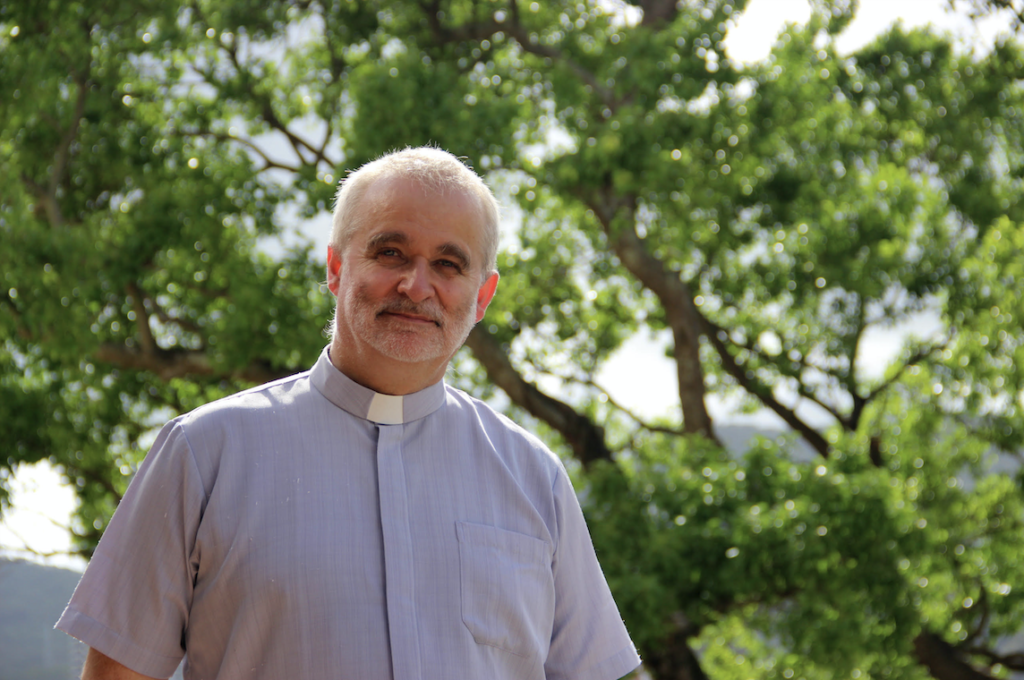
 Follow
Follow
